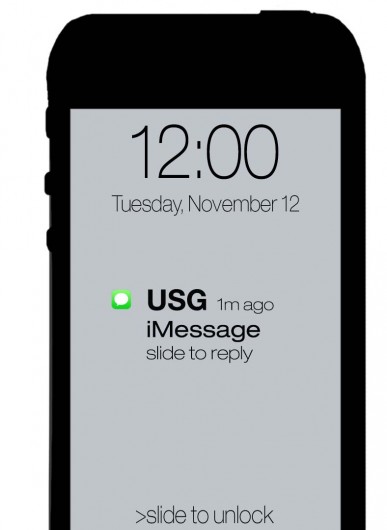
Next time Undergraduate Student Government has a special meeting, some Ohio State students will likely receive a text about it.
In an effort to better its communication with the student body, USG is offering a new texting service, funded through OSU’s agreement with Coca-Cola, that allows students to sign up to receive text message updates about campus and USG events such as certain USG meetings or sponsored events.
To sign up for the service, students simply have to text “USGOSU” to 313131. USG Vice President Josh Ahart, a fourth-year in public affairs, said about two texts will be sent per week, and if students have questions about a message, they can reply to the message with a question that certain USG representatives — USG President Taylor Stepp, Ahart and Chief of Staff Shane Ingalls — can respond to within a day.
The goal of the service, Ahart said, is to encourage people to come to USG events and to elicit feedback from students.
Costs associated with the service are low and aren’t being paid for by students, Ahart said.
“We got a really good deal. It cost us around $400 for the service, just over that, and that covers the whole academic year. It’s paid for by the Coca-Cola fund, not by students,” he said.
Ahart said USG has several plans in place to advertise the service.
“We’ve put it out in our (email) newsletter, we’re going to start advertising on Twitter (by tweeting from the USG account, @USGOSU), and we’re going to rely on word of mouth as well to get out the word,” Ahart said. “We also want to go advertise at residence halls. It’ll take time, but I really hope it does catch on with students.”
The texting service has some obstacles to overcome in the meantime. Though about 125 students are signed up so far, some students haven’t heard about the program since its Oct. 28 start date.
Some students, like Bryce Mikol, a third-year in material sciences engineering, said the service isn’t attractive.
“It’s useful because it gets the word out to more people, but I personally probably won’t use it. USG updates just aren’t as important for me,” Mikol said.
Others said they don’t know if the service will be widely used.
“It can be useful, but I don’t know if people will actually use it,” said Dean Ware, a second-year in molecular genetics. “I probably won’t.”
Ahart said while interest in USG’s happenings has already risen, the texting service could increase involvement even more.
“We revamped our weekly newsletter, and we’ve gone from 200 people on the listserv to 1,200, but that’s still not enough,” Ahart said. “This (texting service) is a more direct way to communicate, because people are always checking their phone, which they don’t always do with their email.”


